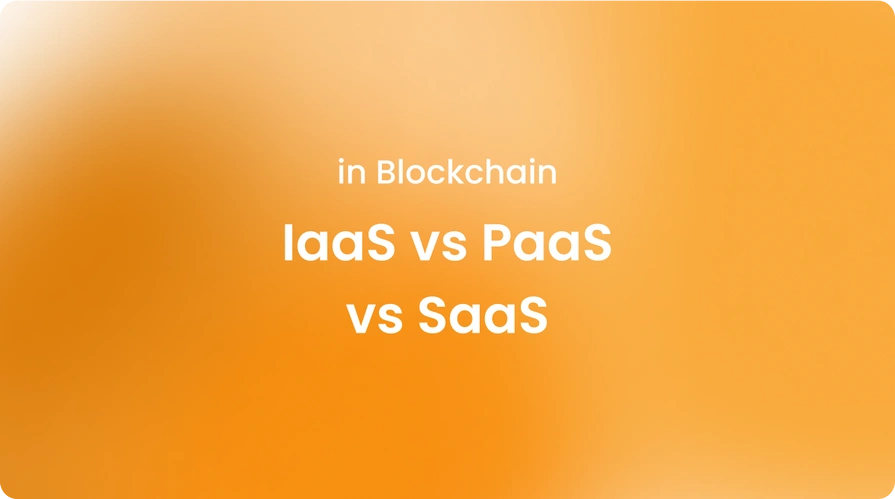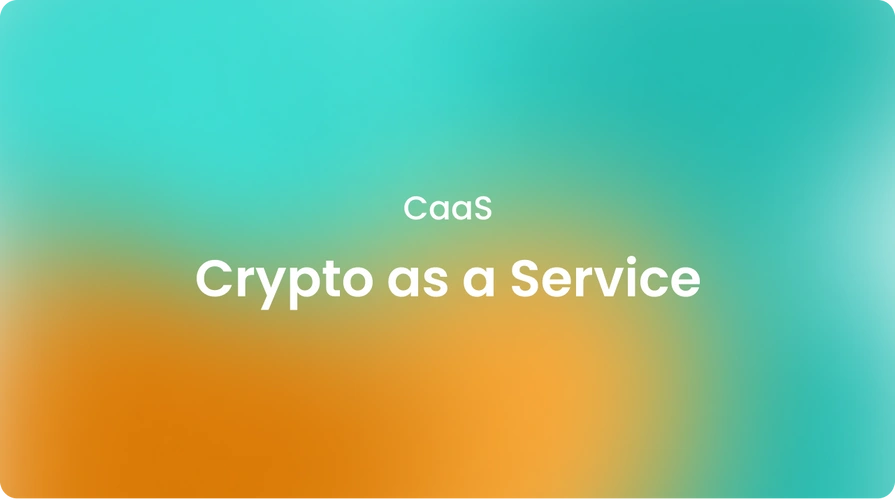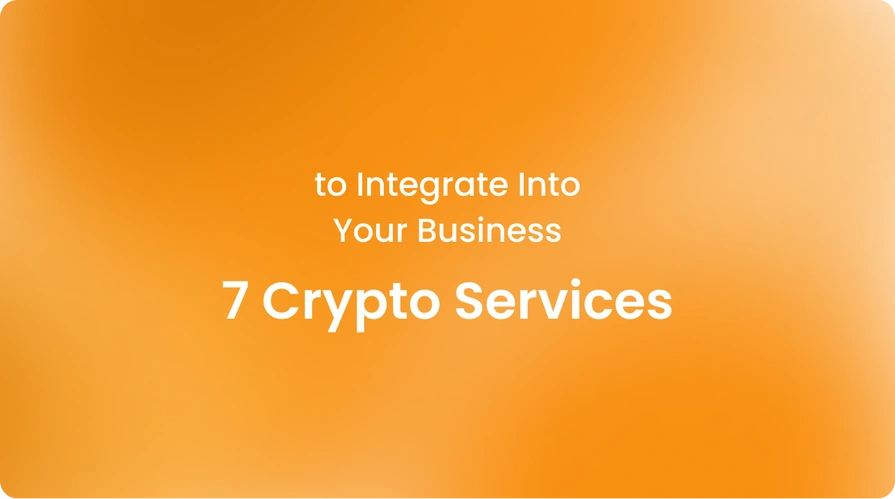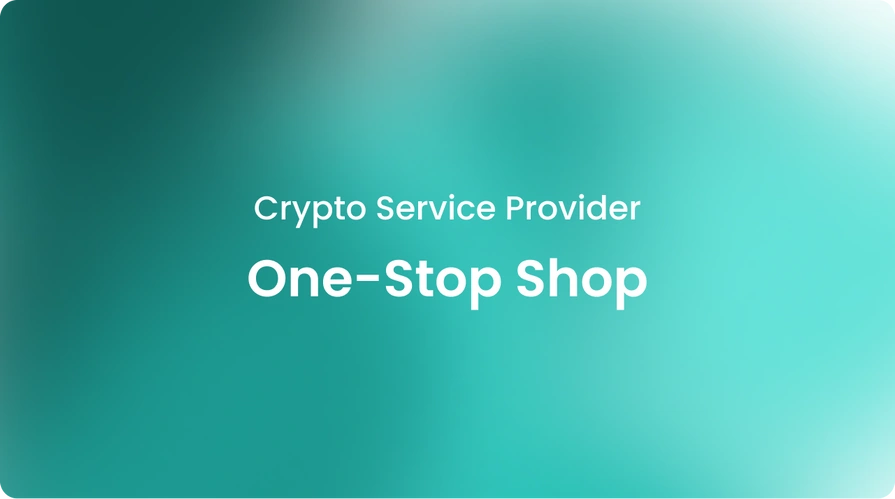|knowledgehub, technology
IaaS vs PaaS vs SaaS in Blockchain

Blockchain technology is revolutionizing many industries by enabling transparency and decentralization through distributed ledgers with models such as IaaS vs. PaaS vs. SaaS in blockchain.
As blockchain networks and applications become more sophisticated, different deployment and hosting models are being used. Infrastructure as a Service (IaaS), Platform as a Service (PaaS), and Software as a Service (SaaS) are three major cloud computing models that are applicable in the blockchain domain.
Join us as we go further in detail on each service model, their benefits, and the major differences between them. By the end of our guide, you will have a better understanding of each concept and how you can benefit from it. Let’s start to explore each model!
What are the advantages of IaaS?
Many financial institutions today rely on IaaS, PaaS, and SaaS provided by established players to power their blockchain deployments for payments and settlements.
Infrastructure as a Service, or IaaS, provides fundamental computing resources like servers, networking, storage, and virtualization technologies on demand in a self-service, pay-per-use model.
With IaaS, the customer manages the operating system, Web3 storage, deployed applications, and possibly limited networking components, while the provider manages the rest of the required infrastructure.
For blockchain projects, IaaS offers several benefits, like flexible scaling, reduced upfront costs, global availability, and high-performance infrastructure optimized for compute-intensive tasks like crypto mining or running full nodes.
Customers directly pay for what they consume without long-term commitments, which makes IaaS ideal for experimentation and proof-of-concept development of blockchain payment solutions.
Is blockchain an IaaS?
In a way, yes—blockchain infrastructure delivered via an IaaS model allows companies to implement blockchain solutions without owning blockchain nodes and hardware themselves.
One-stop shop crypto service providers like Cryptobunq offer secure, high-performance networks and nodes for clients to plug into and access via APIs or decentralized applications.
This means firms can utilize blockchain's decentralization and immutability advantages in a scalable, affordable way. CBQ offers a secure exchange API, node as a service, tokenization, custody and wallet, checkout and invoicing, and more solutions for individuals and businesses.
What are the benefits of PaaS over IaaS?
Platform as a Service (PaaS) sits above IaaS in the cloud stack by providing a fully managed development environment and tools for developers on top of provisioned infrastructure resources.
Some key PaaS over IaaS advantages include:
- Abstracted infrastructure: Developers don't need to configure hardware or middleware; PaaS handles plumbing and operational concerns automatically.
- Out-of-the-box integrations: Blockchain PaaS platforms provide pre-built integrations, libraries, and APIs that link apps to front-end services, databases, etc. to simplify and expedite development.
- Scalable hosting: Like IaaS, PaaS automatically scales computing resources up or down based on traffic to optimize costs. Load balancing also distributes workloads efficiently across available nodes.
- Continuous updates: upgrades to core blockchain protocols, security fixes, etc. are handled in the background, so apps always run on maintained versions.
Blockchain PaaS options from Cryptobunq enable quicker development times for decentralized applications (dApps). You can integrate crypto services into your business and explore secure and effective blockchain-powered solutions for prospective business growth with CBQ.
Is blockchain a PaaS?
While blockchain networks themselves are not strictly a PaaS offering, services like Cryptobunq expose APIs, web interfaces, and development frameworks that allow users to build applications leveraging the underlying blockchain infrastructure like Ethereum or Bitcoin in a 'Platform as a Service' model.
This seamlessly provides development, testing, and hosting capabilities for solutions with blockchain technology. You can trust the expertise of CBQ in this regard.
What are the benefits of SaaS?
Traditional firms are increasingly looking to the benefits of SaaS applications to incorporate blockchain capabilities without overhauling their existing systems.
Blockchain SaaS solutions offer businesses the benefits of decentralization and immutability without the need for expensive hardware or technical expertise. Software as a service takes the cloud model one step higher than PaaS by delivering full-fledged business applications that are managed remotely.
For businesses working with blockchain technology, SaaS can power solutions around cryptocurrency exchanges, crypto payments, crypto custody, on-chain KYC compliance, and more. The main SaaS advantages include:
- Low upfront costs: There are no licensing fees or long-term software contracts. Paying as you go based on usage is initially cheaper.
- Streamlined maintenance: auto-updates by SaaS vendors avoid disruptions and ensure the latest features are always available.
- Optimized performance: Distributed infrastructure provides redundancy and fail-safes so apps stay responsive under heavy loads.
- Access anywhere: Web-based apps can be accessed securely from any internet-connected device. Multi-tenanted design facilitates flexible collaboration too.
Is blockchain a SaaS?
Blockchain startups often choose SaaS-based solutions to focus resources on developing their core products instead of worrying about infrastructure maintenance.
While core blockchain networks themselves are not software applications, Cryptobunq offers SaaS-based crypto wallets, payment gateway plugins, and API in a crypto wallet solutions that are bringing blockchain functionality into typical business application domains.
This allows firms of any size to adopt blockchain-powered features in their product offerings without investing in complex on-premise solutions. Therefore, whether you have a small or large business, you can benefit from blockchain technology with CBQ.
Why is SaaS better than PaaS?
Developers frequently compare SaaS vs. PaaS offerings when choosing a crypto platform for building decentralized applications.
While PaaS expands development velocity, SaaS provides more turnkey solutions for common uses by abstracting away infrastructure, middleware, and programming requirements altogether. Some ways SaaS has an edge are:
- Quick time to value: PaaS streamlines coding, but SaaS means apps can often be activated immediately after procurement without a setup phase.
- Lower skills requirement: SaaS apps are user-friendly for non-technical teams, unlike PaaS development environments, which need coding talents.
- Usage-based pricing: With SaaS, firms only pay for what employees use each month, versus maintaining idle PaaS resources.
- Reliability: SaaS vendors make high-uptime SLA a priority since outages impact their reputation directly versus internal-facing PaaS platforms.
Why is SaaS the most popular?
SaaS is a popular model among other types. By 2024, 91% of organizations are expected to have adopted SaaS, according to research, a surge driven largely by four factors:
- Maturing catalog: Major SaaS providers now offer applications spanning every department, from finance to HR to marketing.
- Mobility: Cloud services allow employees and contractors to work securely from anywhere using laptops, tablets, and phones, versus being tethered to offices.
- Cost control: Scalable pricing models give very clear visibility into IT costs and lower upfront budgets needed versus software licenses.
- Productivity gains: Employees can share work in real-time between offices and geographical regions and collaborate seamlessly on documents and data using online SaaS services.
How does SaaS benefit a business?
SaaS applications deliver massive improvements to recurrent processes in businesses, like:
- Security: Sophisticated access controls, regular audits, and auto-backups mean sensitive cryptographic assets stay protected without manual oversight.
- Compliance: Built-in KYC/AML checks streamline regulatory hurdles for exchanges, lenders, and payment networks.
- Bookkeeping: Digital record-keeping solutions eliminate manual errors, integrate seamlessly with accounting software, and stay viable across jurisdictions.
- Support services: SaaS help desks and guided functions take learning curves out of the equation, so resources go towards growth, not troubleshooting.
Why is SaaS the future?
As more industries digitally transform, infrastructure ownership will increasingly give way to pay-per-use operational models that prefer spending to Capex budgets.
SaaS delivers the scalability, rapid innovation cycles, and total opex approach this transition demands while also raising recurring revenue streams for vendors. By offloading overhead to experts, companies gain the agility to adapt during uncertainty, cementing SaaS as the future of cloud delivery.
The bottom line: choosing between IaaS, PaaS, and SaaS for blockchain projects
IaaS, PaaS, and SaaS each play important roles in how cloud and crypto services are provided. Businesses must evaluate their maturity levels and target uses to determine the right consumption models with secure crypto service providers.
While IaaS focuses on hardware, PaaS expedites development, and SaaS simplifies application access, one size does not fit all. A hybrid approach, leveraging these as needed based on continuous evolution, is best practice.
Cryptobunq makes it possible for organizations of any scale to harness blockchain's benefits through user-friendly IaaS, PaaS, and SaaS options. If you want to adapt your business to the ever-changing blockchain ecosystem, contact us and explore our expert crypto solutions for your business!













